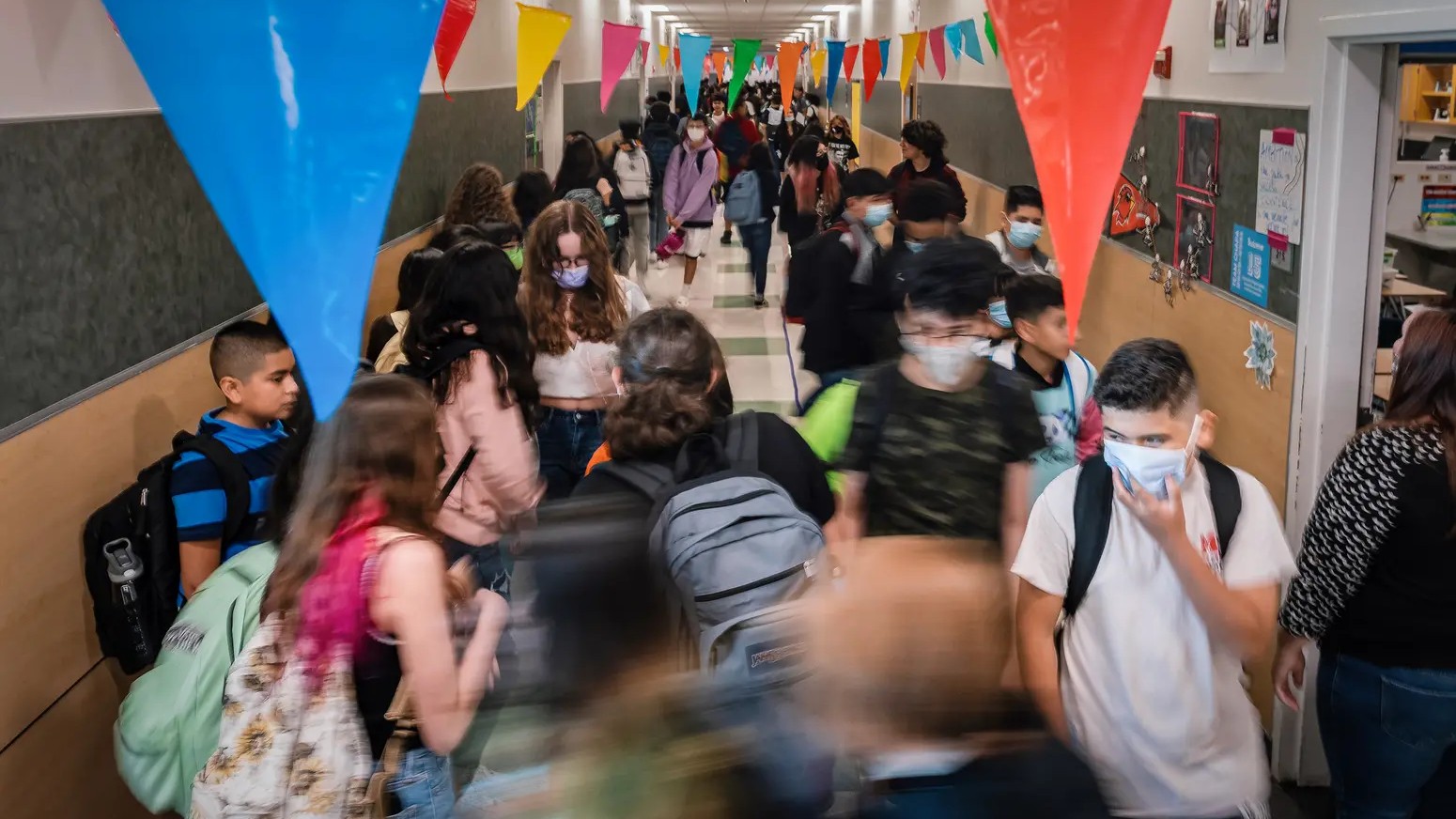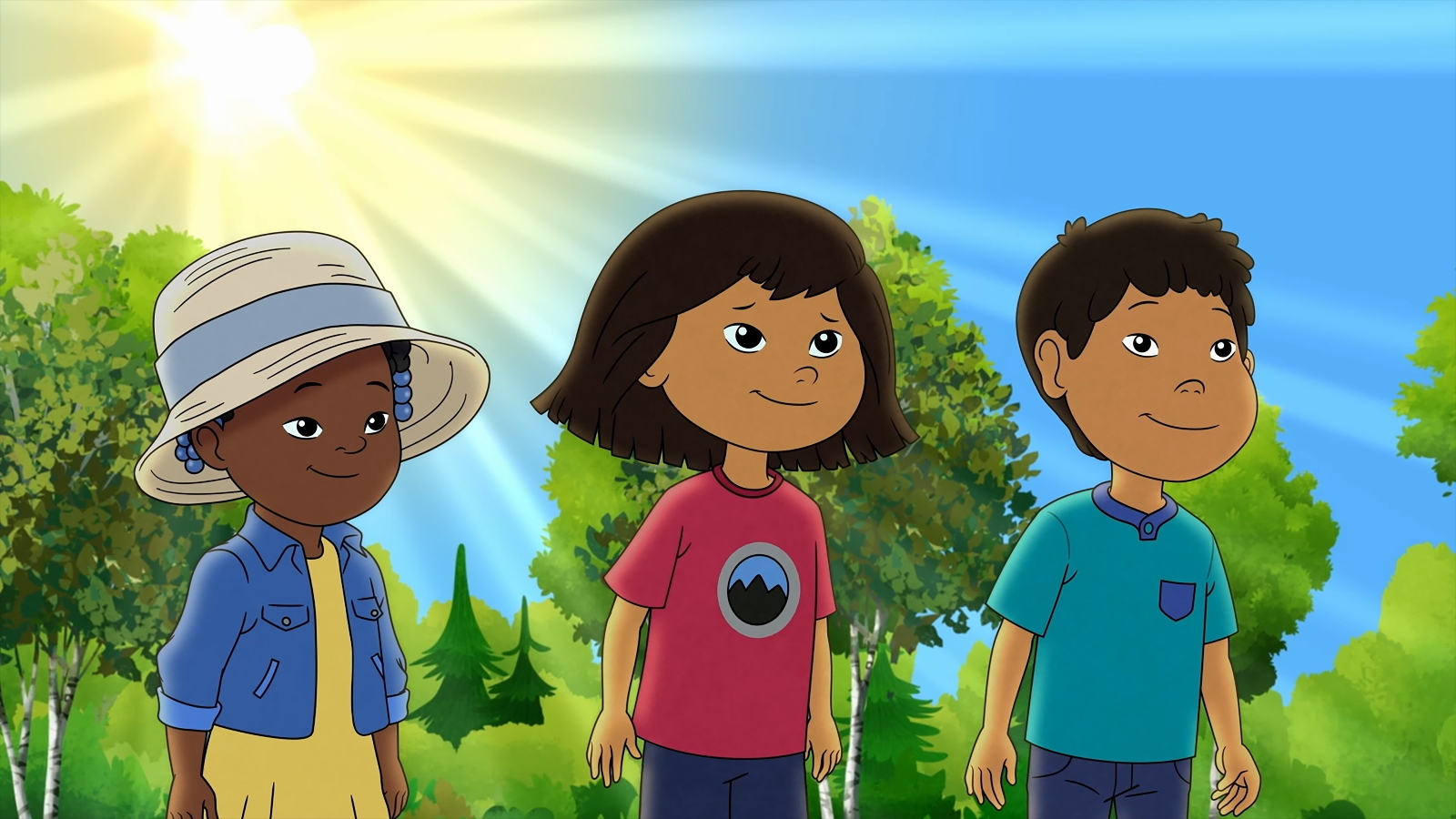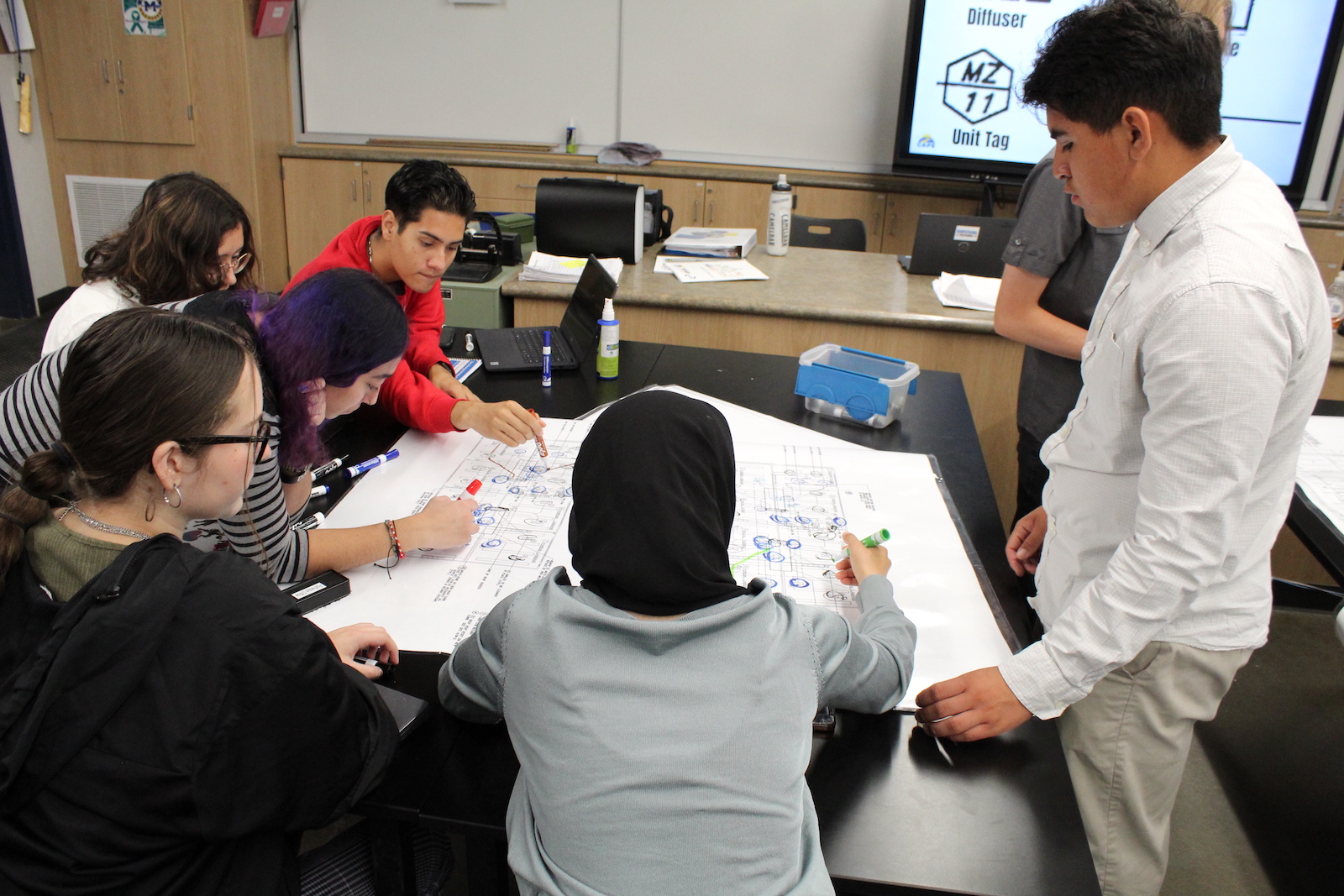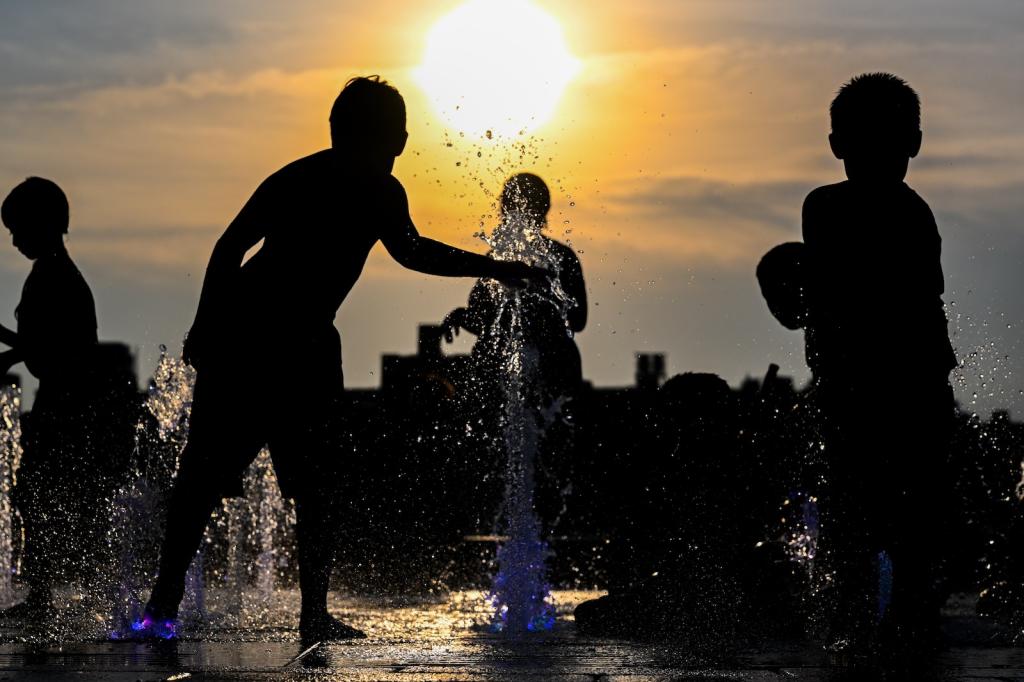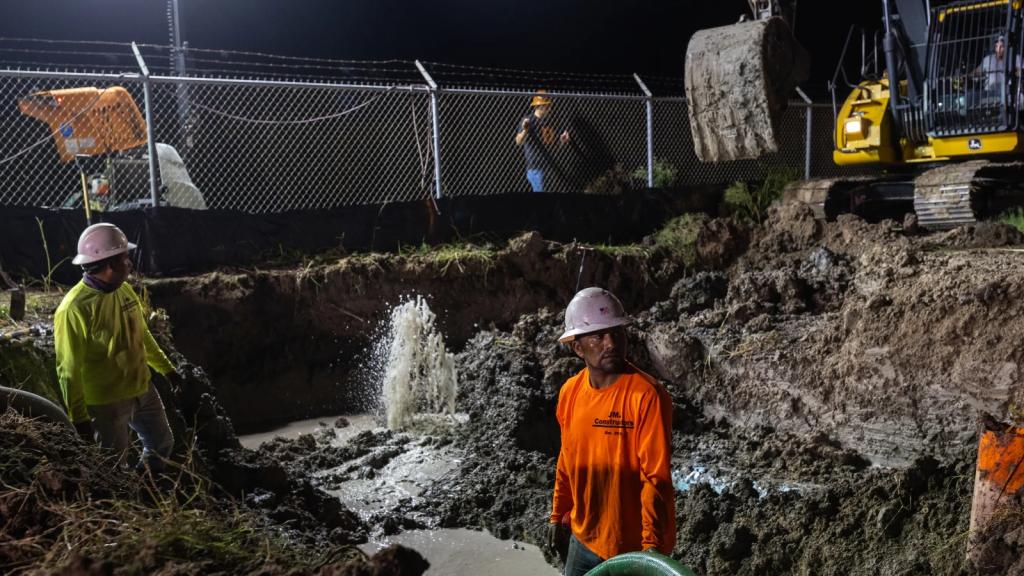This story was first published by The Texas Tribune, a nonprofit, nonpartisan media organization that informs Texans — and engages with them — about public policy, politics, government, and statewide issues.
A Republican-controlled Texas State Board of Education last week rejected seven of 12 proposed science textbooks for eighth graders that, for the first time, were required to include information on climate change.
The 15-member board largely rejected the books either because they included policy solutions for climate change or because they were produced by a company that has an Environmental, Social, and Governance (ESG) policy. Some textbooks were also rejected because SBOE reviewers gave the books lower scores on how well they adhered to the state’s curriculum standards.
The board voted on November 17 to allow five textbooks for eighth grade science to be included on the list, published by Savvas Learning Company, McGraw-Hill School Division, Houghton Mifflin Harcourt Depository, Accelerate Learning, and Summit K-12.
San Antonio Democratic board member Marisa Perez-Diaz said she was disappointed by last week’s decision to reject so many textbooks, some that included Spanish texts.
“My fear is that we will render ourselves irrelevant moving forward when it comes to what publishers want to work with us and will help us get proper materials in front of our young people, and for me that’s heartbreaking,” Perez-Diaz said during last Friday’s meeting. “I’m very disappointed that so many things were voted down based on assertions or thoughts about how things are written or thematics.”
In an almost weeklong meeting that began on November 14, the members discussed dozens of textbooks that will be placed on a list of approved materials for districts to select from next fall.
While school districts are not required to choose only from the SBOE-curated list, many school districts choose to do so because those textbooks are guaranteed to be in compliance with the state’s curriculum standards.
A science curriculum overhaul approved two years ago threw eighth grade science textbooks, in particular, into the political fray. The new standards will require, for the first time next year, that Texas eighth graders learn about climate change — meaning that textbook manufacturers had to update their teaching materials.
Texas is one of only six states that does not use the Next Generation Science Standards to guide its K-12 science curriculum. The standards — developed by states and a committee convened by the National Research Council in 2013 — emphasize that climate change is real, severe, caused by humans, and can be mitigated with actions that reduce greenhouse gases in the atmosphere.
The updated Texas Essential Knowledge and Skills, or TEKS, requires eighth graders to learn about climate change and describe how human activities “can” influence the climate. Critics have said that the standards don’t go far enough, arguing that the requirements don’t ensure students will learn how reducing greenhouse gas emissions from fossil fuels could mitigate climate change.
But overall, most of the proposed eighth grade science textbooks did a good job meeting the state’s new requirements for including information about climate change, according to an analysis by educators who were asked to review the books for Texas Freedom Network, a progressive think tank focused on education.
The curriculum change was approved before many of the current board members were elected. It’s a body that’s taken a rightward turn in recent years after Republicans nationally began taking aim at how schools were teaching history, race, and gender.
Republicans have also in recent years sought to punish companies that adopt ESG policies, which typically attempt to align companies with international climate goals, set internal emissions reductions targets, or employ investment strategies that emphasize renewable energy over fossil fuels. In 2021, Texas lawmakers prohibited state funds, such as the Teacher Retirement System of Texas, from contracting with or investing in companies that divest from oil, natural gas, and coal companies.
The SBOE’s discussions last week have reflected those trends, with board members voting against books that they said were written by companies with environmentally-friendly corporate policies or that went too far in teaching students how to advocate for climate solutions. Others wanted more emphasis on religion, or argued that scientific theories should not be taught as fact.
Evelyn Brooks, a Republican board member from Frisco who represents District 14, for example, last Tuesday questioned the scientific consensus on climate change and suggested that “creation” — a religious concept — should be taught alongside scientific theories of the origins of the universe. Brooks was first elected to the board in 2022 and said that she wanted to see more perspectives of people of faith included in the books.
“The origins of the universe is my issue — big bang, climate change — again, what evidence is being used to support the theories, and if this is a theory that is going to be taught as a fact, that’s my issue,” Brooks said while discussing one of the textbooks. “What about creation?”
Board Chair Keven Ellis, a Lufkin Republican with six years on the board, responded that he believed the board had previously pushed the textbook standards “as far as we can go on that” without the books being determined unconstitutional.
In another discussion on November 14, board member Julie Pickren, a Pearland Republican who has represented District 7 since January, complained that some of the textbooks presented a “theme” that humans are causing climate change.
Human activity has likely caused around 100 percent of climate change since 1951, according to the Fourth National Climate Assessment, and the Global Change Research Program’s most recent report, published earlier this week, reiterated that finding.
“Human activities — primarily emissions of greenhouse gasses from fossil fuel use — have unequivocally caused the global warming observed over the industrial era,” the Fifth National Climate Assessment said.
Throughout the November 14 meeting, Pickren motioned to remove several textbooks from the SBOE’s list.
She successfully motioned to remove the textbooks created by Discovery Education last Tuesday, arguing that the company has an initiative that’s aligned with the United Nations Sustainable Development Goals, and that the initiative was a “theme replicated throughout the curriculum.” Pickren was concerned that the book might violate anti-ESG state laws.
The board also chose to remove a textbook created by publisher Green Ninja after Republican board member and secretary Patricia Hardy argued last Tuesday that it too explicitly took a position that students should warn their friends and family about extreme weather made worse by climate change.
“It’s taking a position that all of that is settled science, and that our extreme weather is caused by climate change,” said Hardy, a Fort Worth Republican who has served on the board since 2003.
Several types of extreme weather in Texas — including more intense heat, droughts, and hurricanes — have been found by scientists, including the state climatologist, to be made worse by climate change.
A handful of Texans spoke to the board in favor of adopting the textbooks during the meeting this week, including one scientist.
“It’s high time that climate change was presented in a straightforward way in Texas science textbooks, beginning in the eighth grade,” Robert Baumgardner, a retired geologist who worked for the Bureau of Economic Geology at the University of Texas, told the board last Tuesday.
Others expressed dismay that elected officials were stuck in a conversation about whether climate change is caused by humans rather than preparing students to lead the energy transition.
“I can’t believe we’re having this discussion, that we need to keep climate change in the books, and keep the religious stuff out of the books,” said Ethan Michelle Ganz, a community organizer and pipefitter from Houston. “Climate change is happening right now. It’s not a future thing. … We need to be competitive in the world market.”

